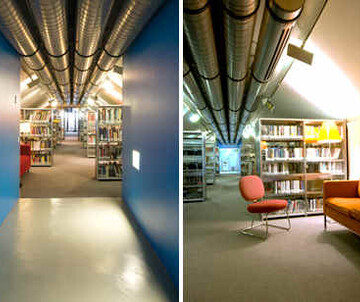11.03.2011 to 17.06.2011
The apostrophes of love - A lecture series
DANCE/PERFORMANCE/MUSIC


The apostrophes of love - A lecture series
Songs of Love and War
Lecture with Deufert & Plischke
Date: Fri, Jun 17, 18:00
Venue: TQW/Studios
Admission free!
Could love - as unspeakable as it is - still count as a political resource? As a resource for communication, for divided in between? Love as an unconditional apostrophe (= exclamatory address) to the other? In awareness of its contingency, its marked gap, apostrophe, mark of elision? Can we still think of \"love as an event of freedom\" (Jean-Luc Nancy), inasmuch as it marks power and presence as vacant, elided. Do we then \"troubled by thinking about love\", according to Nancy, \"fundamentally rethink the distribution or the partition of assumed \'public\' and \'private\' spheres as well as the determination of the › political itself\"? Precisely because of the unfoundedness of love, only in whose aporias we encounter our singularity?
And to what extent does the choreographic on the other hand - itself a constantly re-scrutinising distribution or partition of assumed public and private spheres - correspond to the singular, unconditional rearrangements that are troubled by love? To what extent do contemporary dance and performance inscribe themselves into these \"lovingly potential\" (Gilles Deleuze) apostrophe spaces of the political in order to address them, to apostrophise them in a different way?
----
Why there is no art without love
Lecture by Robert Pfaller (A)
Date: Fri, April 15, 18:00
Venue: TQW/Studios
Admission free!
At a time when pop music is having difficulties inventing something new and instead increasingly produces cover versions of old hits, a producer says: \"Musicians must suffer or love.\" Whether suffering is really so productive is something that can be left open. But in matters of love, here he has hit the nail on the head: if, for example, one observes the circumstances under which people who are not artists ever start to make art works then one condition very quickly becomes evident, namely that of love - in all grades and meanings of the word. Possibly the example of the non-professional artists shows us - only with greater clarity - a necessary condition that is true for any artistic production: one has to love in order to be able to make art.
Robert Pfaller is professor of philosophy at the Vienna University of Applied Art. He was visiting professor in Amsterdam, Berlin, Chicago, Oslo, Strasbourg and Zürich among others.
-----
\"Explain to me, Love\", Eroticism and Touch
Lecture with Gabriele Brandstetter (D) / Gerhard Neumann (D)
Date: Fri, Mar, 11, 18h
Venue: TQW / Studios
Admission free
Gerhard Neumann directs his attention to the rhetoric figure of the apostrophe, the \"address\" by an I to a you as the linguistic gesture out of which the erotic configuration develops: the formula \"I love you\" and the calling of the loved one\'s name. Heinrich von Kleist experimented with this linguistic gesture as perhaps no other author has done in the search of a specific language of love: in his letters as in his works, Gehard Neumann attempts to draft a typology of these Kleistic experiments. Gabriele Brandstetter raises the question of the possibility of an apostrophe of love in dance. How does choreography open the space for touching and being touched, for proximity and distance? How does the weight and the lightness of love appear in dance?
Gabriele Brandstetter is a professor of theatre and dance studies at the Free University of Berlin.
Gerhard Neumann is professor emeritus for German literature and comparative studies at the Ludwig Maximilians University, Munich.
Lecture in the frame of:The Apostrophes of Love
A lecture series on other political spaces for contemporary dance and performance
www.tqw.at